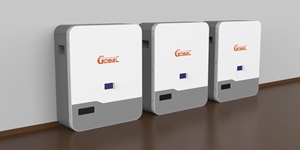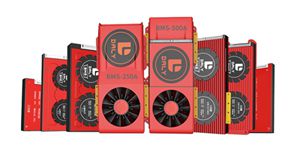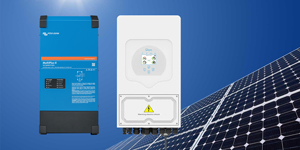RECHARGEABLE BATTERY TYPES
Lithium Battery Supplier-
Gotion 340Ah LiFePO4 Lithium Battery Cell
Ship from China Get Price
-
CATL 3.2V 120Ah LiFePO4 Lithium Battery Cell
Ship from China Get Price
-
CATL 3.2V 240Ah LiFePO4 Lithium Battery Cell
Ship from China Get Price
-
CATL 3.2V 271Ah LiFePO4 Lithium Battery Cell
Ship from China Get Price
-
CALB 3.2V 100Ah LiFePO4 Lithium Battery Cell Wholesale
Ship from China Get Price
-
GanFeng 3.2V 100Ah LiFePO4 Lithium Battery Cell Wholesale
Ship from China Get Price
-
HiGee 3.2V 120Ah LiFePO4 Lithium Battery Cell Supplier
Ship from China Get Price
-
HiStar 3.2V 100Ah LiFePO4 Lithium Battery Cell Distributor
Ship from China Get Price
-
Solution Lithium Battery Charger -
Solution Solar Inverter
Rechargeable Batteries: Understanding the Different Types for Efficient Power Rechargeable batteries have revolutionized the way we use power tools, devices, and appliances. With the option to recharge and reuse, they reduce waste and minimize the environmental impact of traditional single-use batteries. As technology advances, the variety of rechargeable battery types has increased, each offering unique advantages and applications. In this article, we'll delve into the world of rechargeable batteries, exploring the different types, their characteristics, and uses. Nickel-Cadmium (NiCd) Batteries: Known for their reliability and high discharge rates, NiCd batteries are commonly used in power tools, two-way radios, and alarm systems. They contain toxic chemicals, making disposal a concern. Nickel-Metal Hydride (NiMH) Batteries: Offering a higher capacity and longer lifespan than NiCd batteries, NiMH is a popular choice for power drills, cordless phones, and toothbrushes. They are more environmentally friendly than NiCd batteries. Lithium-Ion (Li-ion) Batteries: With their high energy density and long cycle life, Li-ion batteries dominate the market for portable electronics, electric vehicles, and renewable energy systems. They require protection circuits to prevent overheating and explosions. Lead-Acid Batteries: Utilized in industrial applications, such as emergency power systems and renewable energy storage, lead-acid batteries provide a reliable and cost-effective solution. They have a relatively short lifespan and require regular maintenance. Lithium-Iron Phosphate (LiFePO4) Batteries: Known for their safety, reliability, and eco-friendliness, LiFePO4 batteries are used in electric vehicles, renewable energy systems, and backup power systems. They offer a longer lifespan and better temperature stability than traditional lithium-ion batteries. Understanding the different types of rechargeable batteries is crucial for selecting the right solution for your specific needs. By choosing the optimal battery type, you can ensure efficient power supply, reduce waste, and contribute to a more sustainable future.

 Europe Warehouse
Europe Warehouse

























